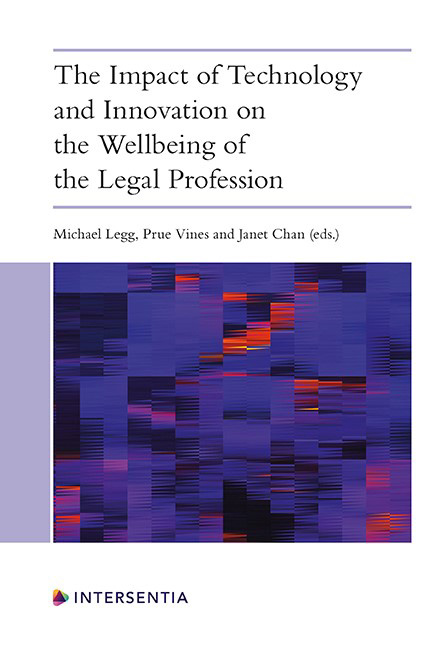Chapter 10 - Artificial Intelligence and Lawyer Wellbeing
Published online by Cambridge University Press: 22 December 2020
Summary
INTRODUCTION
This chapter investigates what Artificial Intelligence (AI) means for the wellbeing of lawyers. Lawyers‘ wellness is a central topic of academic and professional discussion, particularly after several studies found lawyers to be especially prone to psychological distress. Meanwhile, the use of AI in legal service-related activities is rapidly increasing, as measured by the growth in‘LegalTech‘, and a flurry of practice-oriented and academic commentary. The effects of automation have been debated for decades, but only with recent improvements in AI has automation been capable of impacting professional work such as the fields of medicine and law. In terms of the impact of AI in general, there is some consensus that particular jobs within occupations, or tasks within jobs, are susceptible to automation; but rarely is an entire occupation automatable. In this vein, recent work on how AI will affect law or legal services refers to the augmentation of lawyers by AI, rather than the automation of law (and replacement of lawyers) per se. The use of AI in legal services is often discussed in relation to other kinds of change, whether they be technological, structural or economic. In this way, as in this chapter, AI is a symbol for change, as it is emblematic of the most extreme form of technological change. However, our concern is what AI, as a shortcut for change, then means for wellbeing.
The rosiest views of what AI means for legal practice focus on its capacity to eliminate or reduce‘ grunt work‘, freeing lawyers to engage only in higher-level, more interesting and self-directed activities. The pessimistic forecast is that AI is likely to intensify an already highly-competitive legal services market: the jobs of those in the most precarious positions (junior lawyers and paralegals) are most threatened by automation, while more senior lawyers will face continuous pressure to cut costs, adapt to new technology and see their work steadily eroded.
- Type
- Chapter
- Information
- Publisher: IntersentiaPrint publication year: 2020
- 1
- Cited by



